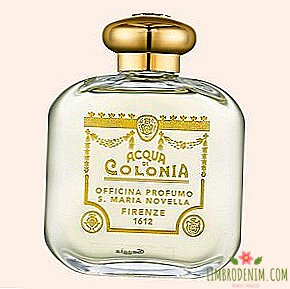The main antioxidant: Why does the skin need vitamin C
Text: Moore Sobolev, author of the Telegram-channel Fierce & Cute
Nasty autumn weather reflects on our beautiful faces.: if in the summer (normal, not this), the skin usually shines almost by itself, then the rest of the time I want to somehow help her. The main fighter for a smooth healthy skin - vitamin C. But there are, as they say, nuances.



Vitamin C was discovered only in 1912, but over the past 100 years it has been unequivocally recognized as one of the most important substances for the human body. It is synthesized from glucose and is produced by most living organisms on earth, excluding, however, the human being — we, like other primates, were unlucky in this regard. The main function of vitamin C - the fight against oxidative stress, that is, the destruction of cells under the influence of toxic forms of oxygen. A diet rich in ascorbic acid is beneficial and even necessary for the body, but it does not matter for the skin: everything is derived through the excretory system, therefore, to provide the skin with vitamin C, you have to tap into the wonders of the cosmetic industry. To the skin, vitamin C (its most famous form - ascorbic acid) is needed, first of all, for the same purposes as the body - as an antioxidant.
A few words about antioxidants. There are many of them, and some of them produce our own body, but this process, like many others, has slowed down over the years. Cosmetics containing antioxidants, as Dr. Mike Bell explains in an interview with the British Marie Claire, not only neutralize free radicals in the upper layers of the skin, but also trigger the corresponding internal processes. Ideally, at the same time, the body is supported from the inside by those antioxidants that we get from food and as dietary supplements. The main problem is the absorption and biological activity of antioxidants, which should be preserved.



Vitamin C is considered in dermatology one of the main, if not the main antioxidant. The WebMD medical site mentions vitamin C products as “probably effective” for speedy healing of the skin after laser procedures and for combating photoaging. The Beauty Brains blog of cosmetic chemists identifies five main properties of vitamin C that can affect the skin: the formation of collagen (vitamin C is involved in the formation of stable collagen fibers), acne and post-acne treatment, increasing the barrier function of the skin, protection from UV rays and preventing hyperpigmentation . Vitamin C is one of the few ingredients that can affect melanogenesis, destroying the immediate process of pigmentation. An important point: despite the fact that vitamin C protects against photo-aging, it is not a means of protection from the sun, so you should always use SPF creams on top of the care with ascorbic acid.
In cosmetics, vitamin C can be presented in different forms, but usually it is ascorbic or L-ascorbic acid - a well-studied and active form. The effectiveness of vitamin C is directly proportional to its concentration, but more than 20% do not usually put in home care products: it happens 25%, but the professional journal Indian Dermatology Online Journal, referring to clinical studies, says that more than 20% the body simply does not absorb. The standard concentration is 5-10%: this is enough for effective care, and the risk of irritation is minimized. However, the same Indian Dermatology Online Journal warns that nuances are important, since some forms of vitamin C do not remain biologically active in the skin.



The main nuisance associated with vitamin C is its instability: like all antioxidants, it is extremely sensitive to the effects of light and air and disintegrates very quickly. The success of the formula depends on the stabilizing agents and the pH level (it should be below 3.5), but even more so on the packaging: the best products with ascorbic acid in the composition are packaged in opaque tubes or (better) in sealed bottles with pump. The cream in a classic bank, unfortunately, will be effective for a very short time, even if its formula is stabilized. The ideal format for vitamin C is a powder that is mixed with an emulsion or cream immediately before use.
The burning question is the compatibility of vitamin C with other active ingredients, but here, as it turns out, everything is not bad. The most popular combination is vitamins C and E (it is also an antioxidant): they are often added to the same remedies so that the antioxidant effect is more powerful, and in a bundle they even out the skin tone. Paula Begun’s “Cosmetic Cop” debunks popular myths that vitamin C cannot be used with niacinamide and retinol: it turns out that all participants only become more effective in combinations. The combination of vitamin C with acids is also possible, but pay attention to the pH in your products: if it varies greatly, it makes sense to wait until the acidic agent is completely absorbed before applying cream with vitamin C.
Photo:Aizel, 3LAB, John Lewis, Kiehl's, Beauty Choice, Beauty Heaven, Priceline, Cosmo Synergy, Mecca




